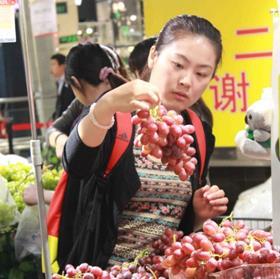
Australian Prime Minister Tony Abbott and Chinese President Xi Jinping have agreed to the terms of a landmark free trade agreement (FTA) that will see the tariff rate on a number of horticultural products eliminated over the next 10 years.
Both countries will undertake legal reviews of the concluded text and prepare Chinese and English language versions for signature. Abbott hopes the FTA will be ratified in early 2015.
“Australian businesses will have unprecedented access to the world’s second largest economy,” Abbott said. “It greatly enhances our competitive position in key areas such as agriculture, resources and energy, manufacturing exports, services and investment.”
Peak industry body Citrus Australia has welcomed the news, with all citrus tariffs to be cut over eight years. Tariffs on Australian oranges entering China are currently 11 per cent, while the mandarin tariffs sits at 12 per cent.
“Though the time frames are a little long, this is a great outcome for Australian citrus,” Citrus Australia Chief Executive Officer Judith Damiani said. “China is our fastest growing and highest valued export market reaching A$30m (US$26m) to September 2014.”
Alex Livingstone, chief executive of Australian horticulture body Growcom, also praised both nations for reaching an agreement, although he suggested obstacles lie ahead. Livingstone urged the Australian Government to use the FTA as leverage for improved market access conditions in the People’s Republic.
“This is a great step forward in Australia’s desire to move away from relying on mineral exports to expanding our food and agricultural exports to the Asian middle class,” he explained. “However, difficulties still remain for Australian producers such as the very high cost of freight in serving this market and the various biosecurity protocols which can be very difficult to meet. We look forward to the government continuing to work with China on removing barriers to improved trade relations.”
The agreement has found at least one detractor is Austalian senator Bill Heffernan, who suggested China's decision not to float its currency could provide it with a significant advantage.
China is Australia's largest two-way trading partner in goods and services, with exchange between the two nations valued at more than A$150bn (US$132bn) in 2013. Australian exports to the People's Republic topped A$94bn (US$82bn) last year, Chinese imports added up to A$47bn (US$41bn).



